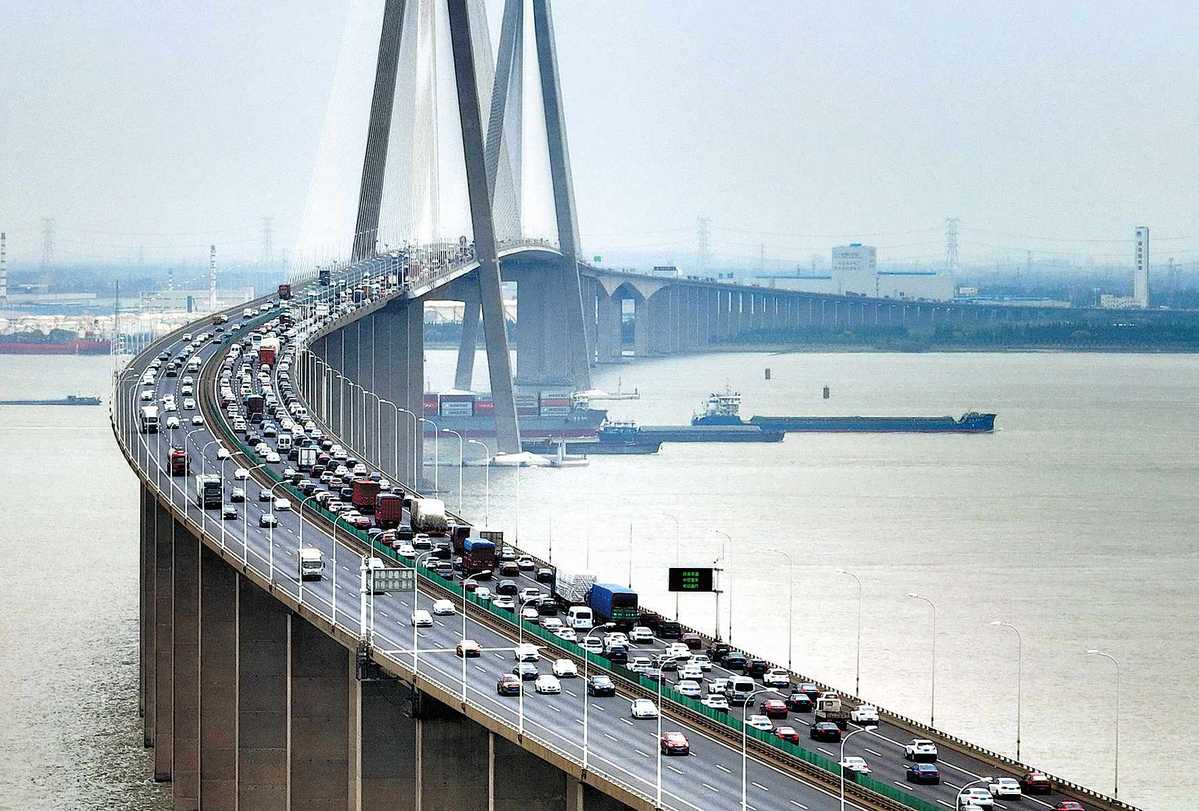Badmouthing China benefits no economies


It is achievable: you can bring to a standstill a 400-meter-long fully loaded oil tanker cruising full throttle in the open sea. But for that, you first need to catch up with the ship with fast, small boats, climb up the vessel using sophisticated devices and innovative techniques, tie all its tools and resources with ropes and cables, and then transfer them to an even bigger ship or lots of smaller ships.
It can be achieved, but at a very high cost, because productive resources, in this case other ships, skilled and unskilled manpower and technology innovations, would have to be redirected toward stopping the giant. And to the direct cost of the operation, you need to add the massive cost of unloading and loading the cargo and transporting them back on the ship.
Needless to say, a small ship can be stopped easily and at a lower cost.
Regardless of the set of data chosen, the Chinese economy is a major driver of global economic growth, not only quantitatively but also qualitatively, given the increasingly high-tech components of the value-added chains in which it participates.
All this makes China like that big ship sailing across the oceans of an interdependent world. China is not alone, certainly, for it shares that space with the United States and other large economies, but its comparative importance cannot be overemphasized.
According to the World Bank, China's GDP in 2022 was about $18 trillion, second only to the US' $25 trillion, which means the two countries, together, account for more than 40 percent of the world's GDP. Other major economies such as Japan and Germany are far behind the US and China, in third and fourth places with GDP of $4.2 trillion and $4.1 trillion, respectively.
However, in terms of purchasing power parity, China's GDP adds up to $30.3 trillion, almost 19 percent higher than the comparable figure for the US, and nearly three times the GDP (PPP) of Japan and Germany taken together.
In terms of international trade, China is even closer to the US. In 2022, China's total exports and imports reached $6.2 trillion compared with $7 trillion for the US and far above that of Germany and Japan. Outward foreign investment, which amounted to $160 billion in 2022, is another indicator of China's vital role in the global economy, although it still has a long way to go to catch up with the US. As a matter of fact, among the world's four largest economies, China is in the last position, with Germany and Japan in the second and third.
This, by the way, should end the argument that China is seeking to influence the world by acquiring foreign assets. In this regard, it seems other countries are the culprits. If there is some truth in the ludicrous argument that foreign investment is a way of controlling other countries' economies and that it is bad for the recipient countries, China would be a victim, for in this respect it is second only to the US. In 2022, inward foreign investment in China was $189 billion, less than the US' $285 billion but more than that of Japan and Germany combined.
Another way to assess the comparative dimensions of the Chinese economy is to look at its foreign exchange reserves. As of September 2023, its foreign exchange reserves added up to $3.12 trillion (including $400 billion from the Hong Kong Special Administrative Region), almost two and a half times that of Japan ($1.3 trillion) and more than 10 times that of Germany (about $300 billion).
The US reports a rather low figure ($240 billion). But given the position of the dollar as the paramount tool of global transactions, the US' reserves of foreign exchange are practically unlimited, which renders irrelevant any comparison. By the way, as part of its foreign exchange reserves, China holds more than $800 billion in US government bonds. In fact, China is a major foreign holder of US debt and thereby a major financier of the US' accumulated fiscal deficits.
These and the value of production of specific goods — in which China outshines every other country by a large margin — call into question the idea that it can be held back in its quest for achieving higher levels of development. Certainly, its current growth rate of about 5 percent is about half its average growth rate of the 30 years since the launch of reform and opening-up, but it still outperforms all advanced economies and, with very few exceptions, the rest of the Global South.
Humanity needs mature adults in the room, not zealous macho populists with a zero-sum mentality. Let there be no doubt that even if the efforts to contain China do not push the world toward confrontation, the costs of merely trying to contain China would be huge, costs that every country, not least those trying to contain China, would have to bear.

The views don't necessarily represent those of China Daily.

































